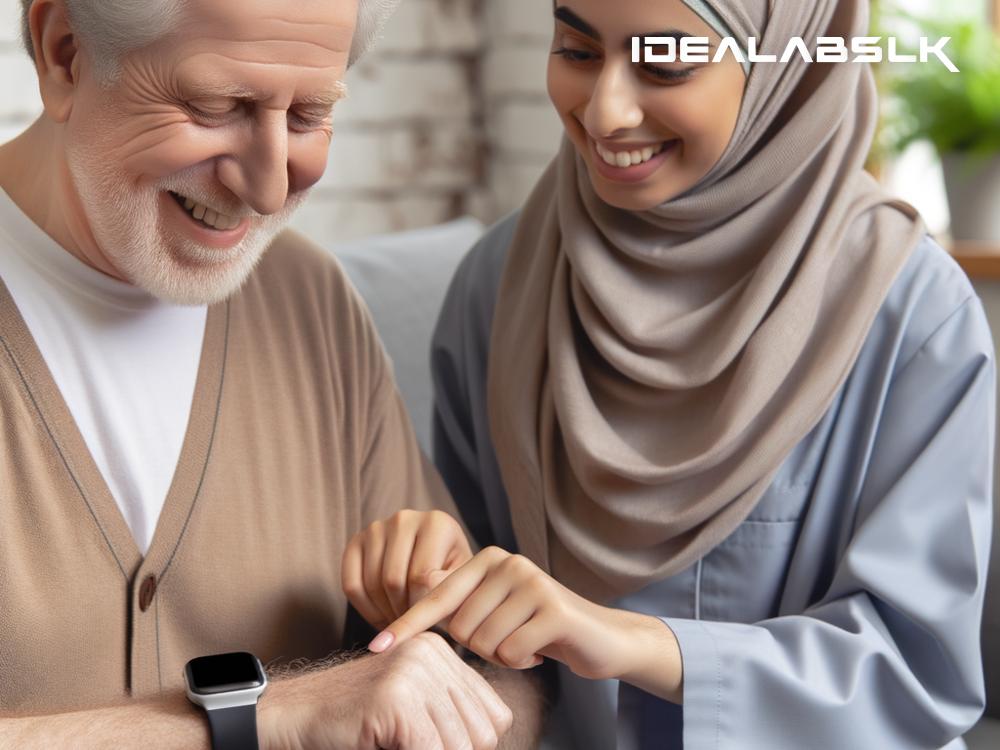How Technology Helps People with Dementia: Wearables and Apps for Better Memory Care
Dementia is a condition that affects millions of people around the world. It can make remembering things, thinking clearly, and taking care of oneself more difficult. Fortunately, technology is stepping up to offer some amazing support. Through wearables and apps, we're seeing a new era of better care for individuals with dementia. Let's explore how these advancements are making a big difference.
Wearables: Smart Gadgets for Daily Support
Wearables are gadgets you can wear, like watches or bracelets, that have smart technology inside them. For people with dementia, these devices can be life-changers. Here’s how:
1. Reminding Them of Important Things
One of the biggest challenges for those with dementia is remembering daily tasks. Wearable devices can be programmed to send reminders for medication, appointments, or even when it's time to eat or drink water. It's like having a personal assistant on your wrist!
2. Tracking Location for Safety
Safety is a major concern for individuals with dementia who might wander and get lost. Many wearables come with GPS tracking, so family members or caregivers can easily locate the person if needed. This feature provides peace of mind for everyone involved.
3. Monitoring Health
Some wearables can monitor heart rate, sleep patterns, and activity levels. This information can be invaluable for doctors and caregivers to understand the health and well-being of the person with dementia. It can also alert them if something seems off, ensuring timely medical attention if necessary.
Apps: Your Smartphone as a Cognitive Companion
Smartphones are powerful devices, and apps are making them invaluable tools for memory care. Here are a few ways apps are coming to the rescue:
1. Memory Games and Exercises
Several apps are designed with games and activities that can help keep the brain active. Engaging in these brain exercises can be both fun and beneficial for people with dementia, potentially helping to slow the progression of memory loss.
2. Daily Routine Assistance
There are apps specifically created to assist with daily routines. They can help individuals remember to perform personal hygiene tasks, take medications on time, and alert them to scheduled events or appointments. Simplifying these activities goes a long way in maintaining independence and quality of life.
3. Photo Sharing and Social Connection
Staying connected with friends and family is crucial, but it can be challenging for those with dementia. Apps that allow for easy sharing of photos and messages can help bridge this gap, offering a means for emotional support and keeping the person involved in the lives of their loved ones.
4. Voice-activated Virtual Assistants
Voice-activated apps, or virtual assistants, can answer questions, play music, set alarms, and more, simply by speaking to them. This hands-free operation is particularly useful for individuals who may struggle with using a smartphone due to memory or motor skills issues.
Bringing It All Together
The merging of technology with care for individuals with dementia is a beacon of hope for many families. By offering tools for safety, health monitoring, cognitive exercises, and social connection, wearables and apps are proving to be invaluable allies in the quest for better dementia care.
Importantly, while technology offers wonderful support, it's essential to remember the human element in care. These devices and apps are most effective when used in combination with traditional care methods, offering a complementary approach that considers both the physical and emotional well-being of the individual.
As we look to the future, it's exciting to think about the potential further advancements in technology that could continue to improve the lives of those with dementia. From wearables that can predict and prevent falls to apps that can offer even more personalized cognitive exercises, the possibilities are vast.
In the meantime, embracing the current technology available can make a significant difference. Whether you're a person living with dementia, a caregiver, or a family member, exploring these options can provide additional support, peace of mind, and perhaps most importantly, a sense of control and independence for those affected by this challenging condition.
The journey with dementia is not an easy one, but with the help of technology, it's becoming a path filled with more support, safety, and moments of joy. Let's continue to explore and embrace these tools that, step by step, are making the world a more dementia-friendly place.

